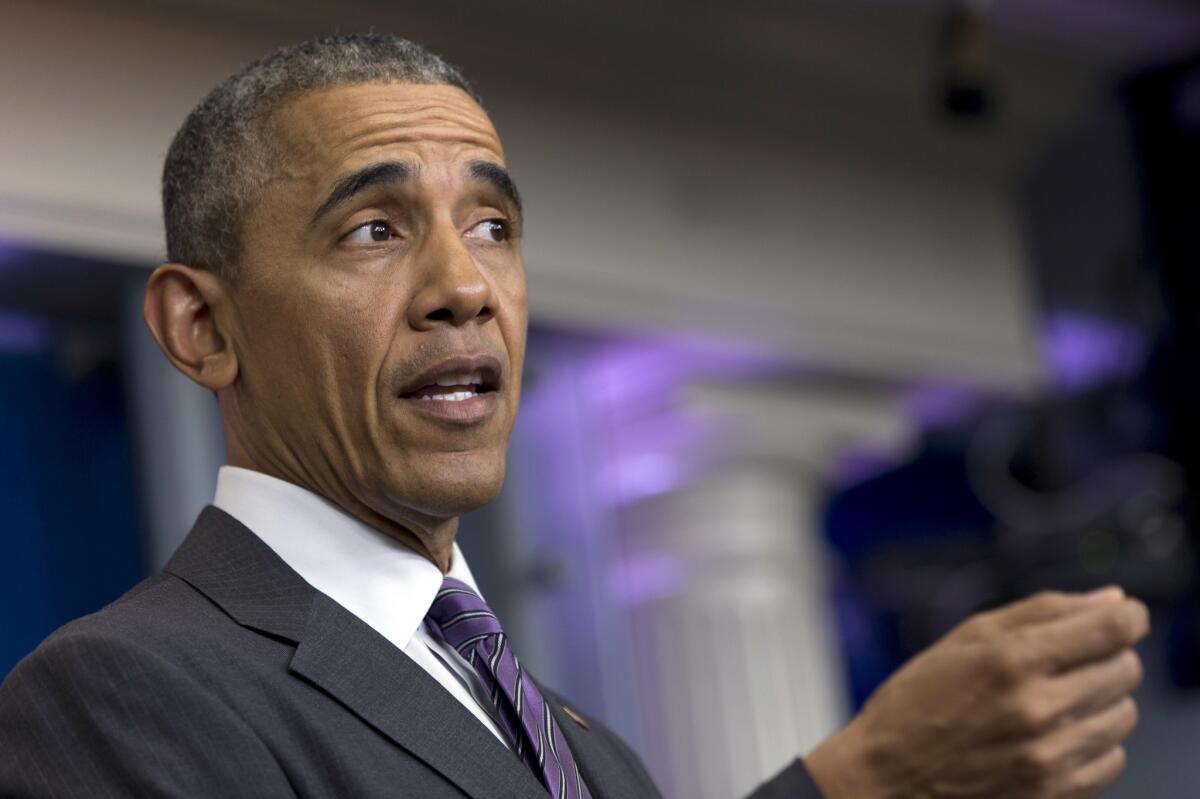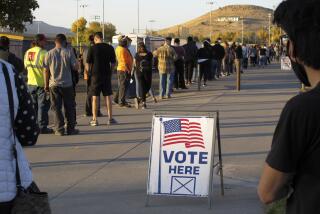Editorial: Not to be a downer, but here’s a reality check on ‘Loyalty Day’

President Obama speaks with college students during “White House College Reporter Day” on April 28.
As is customary for U.S. presidents around this time of year, President Obama this week recognized Loyalty Day with a lofty proclamation extolling American democracy, freedom and shared national purpose. This year’s version spoke of how America is defined not by “similarities of origin or creed,” but by “our dedication to common ideals,” including “an overarching belief in the possibilities our shared future holds.”
We find nothing to quibble with in that aspirational view of the nation, but the history of Loyalty Day itself is not so admirable. First celebrated in 1921 as Americanization Day, it arose in response to the 1917 Bolshevik Revolution in Russia and growing radicalism in a swelling U.S. labor movement. Congress formally recognized Loyalty Day in 1958, when Cold War-era anti-communist fervor led to a hunt for suspected subversives that cost countless leftists their jobs, prompted prosecutions for political beliefs, led governments to require employees and job seekers to take loyalty oaths, and propelled inquisitions by the House Un-American Activities Committee. It’s no coincidence that Loyalty Day falls on May 1 or “May Day,” a celebration of workers around the industrialized world observed on the anniversary of the 1886 Haymarket Square incident in Chicago — when four people were executed on the strength of murky evidence that they killed eight people (seven of them police officers) during a labor rally for the eight-hour workday.
We’re all for recognizing the strengths of American democracy, even during its ebbs (this presidential election may be one), and for highlighting the dreams and desires that undergird the Constitution. But it’s also important to recognize our full history and not gloss over those moments when we fell short of our aspirations, and those “common ideals” the president mentioned.
Follow the Opinion section on Twitter @latimesopinion and Facebook
More to Read
A cure for the common opinion
Get thought-provoking perspectives with our weekly newsletter.
You may occasionally receive promotional content from the Los Angeles Times.










